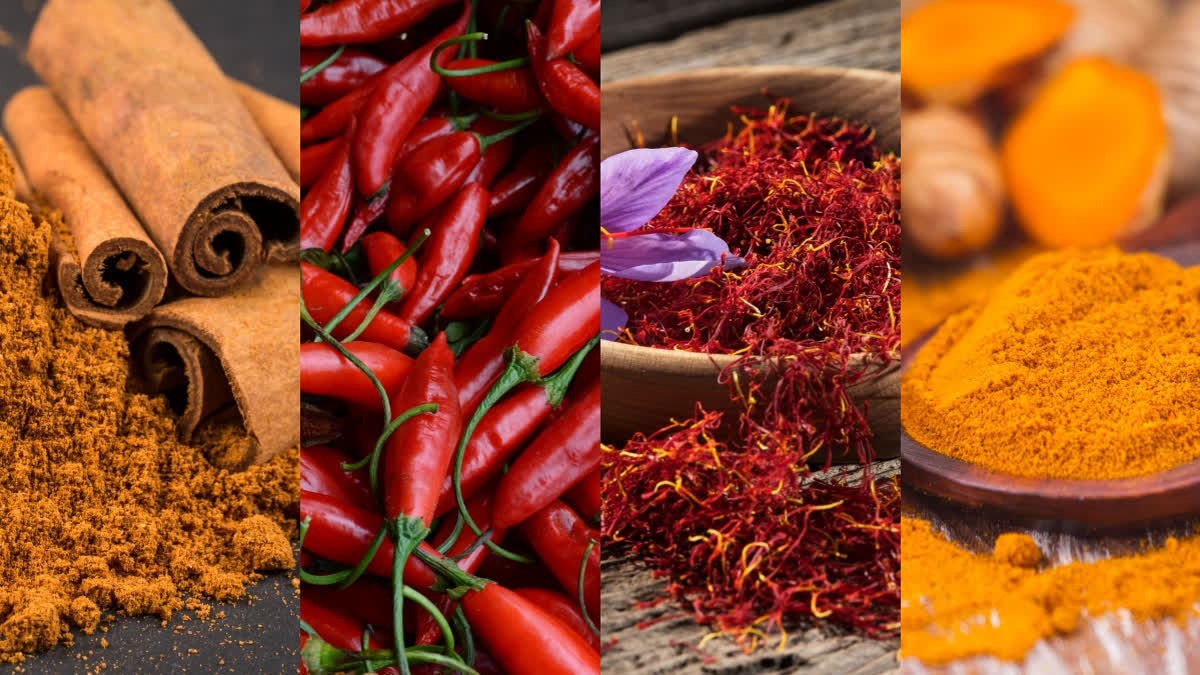Metabolism refers to the chemical reactions within our body cells that generate the energy needed for essential processes like growth, movement, and development. Experts describe the metabolic rate as the amount of energy our body uses daily to function and perform tasks such as exercising, digesting, and processing food.Factors such as age, gender, activity levels, and underlying health conditions significantly influence our metabolic rate.
Maintaining a healthy and balanced diet rich in nutritious foods, paired with regular physical activity, is key to supporting a healthy metabolism. This not only helps maintain an optimal body weight but also reduces the risk of metabolic disorders like diabetes.
While no single food can drastically boost metabolism, studies suggest that certain foods, including spices, can slightly increase metabolic activity and help burn more calories throughout the day. And what better place to explore the metabolic benefits of spices than India—a land celebrated for its rich variety of spices and masalas?
From the kitchens of grandmothers, where age-old spice-infused remedies tackled countless ailments, to the unique blends that define Indian cuisine, spices hold a treasure trove of health benefits. Let’s revisit these time-tested traditions and uncover the metabolic-boosting secrets hidden in our spice jars.
Chili Pepper
Red Chili to boost metabolism (Getty Images) Chili peppers are packed with powerful phytochemicals that offer cellular-protective and anti-inflammatory benefits, making them a boon for metabolic health. Capsaicin, the primary alkaloid compound in chili peppers and chili powder, is responsible for their spicy flavor. This compound boasts strong anti-inflammatory and antioxidant properties, which may positively influence metabolism.
Research suggests that capsaicin can boost energy expenditure and promote fat oxidation, commonly referred to as fat burning. It may also aid in reducing body fat by increasing energy use, enhancing fat breakdown, and curbing appetite.
However, some studies have found a correlation between higher chili pepper consumption and increased body mass or a higher likelihood of obesity. These findings highlight the complexity of how chili peppers, chili powder, and capsaicin impact metabolism and indicate that more research is needed to fully understand their effects.
Cinnamon
Cinnamon to boost metabolism (Getty Images) Cinnamon, a widely cherished spice, is harvested from the bark of various cinnamon tree species, including Cinnamomum aromaticum (cassia cinnamon) and Cinnamomum verum (Ceylon cinnamon). It is rich in health-boosting compounds, particularly cinnamaldehyde, a concentrated essential oil found in cinnamon that may influence metabolism.
Cinnamaldehyde has been shown to enhance calorie expenditure and thermogenesis, the process by which glucose (blood sugar) and fatty acids are broken down to generate heat and maintain body temperature. Additionally, studies suggest that cinnamon supplementation can lower blood lipid levels and support healthy blood sugar regulation, which contribute to improved metabolic health.
Ginger
Ginger to improve metabolism (Getty Images) With its warm, spicy flavor, ginger is a beloved ingredient in both sweet and savory dishes, such as baked goods and curries across India. Regular consumption of ginger may support metabolic health by reducing appetite, enhancing thermogenesis, and inhibiting fat absorption in the digestive tract.
Compounds like 6-gingerol, found in ginger, play a role in boosting thermogenesis, a process that helps the body burn fat more efficiently. A review of studies found that ginger supplementation significantly reduced body weight and waist-to-hip ratio in individuals with overweight or obesity, a sign of decreased belly fat. Lower belly fat is crucial, as excess abdominal fat is linked to metabolic syndrome—a collection of symptoms, including high blood sugar and cholesterol levels, that increase the risk of heart disease and stroke. While these findings are promising, not all studies confirm ginger's effectiveness for weight loss or fat burning. Further research is needed to fully understand its impact on metabolism.
Turmeric
Turmeric to boost metabolism (Getty Images) This vibrant yellow spice owes its health benefits to curcumin, its main active compound. Curcumin has been shown to boost energy expenditure and inhibit adipogenesis—the formation of new fat cells. It activates key pathways in the body, such as the AMP-activated protein kinase (AMPK) signaling pathway, which promotes fat burning and reduces fat storage. Supplementing with curcumin may enhance metabolic health by supporting weight loss and reducing body fat levels.
Cumin
Cumin to boost metabolism (Getty Images) A staple in Indian, African, and Mexican cuisines, cumin may support fat burning and appetite reduction through mechanisms still under study. A review found that cumin supplements, in doses ranging from 25 to 2,000 milligrams daily over 8 to 24 weeks, effectively reduced body mass index (BMI) and waist circumference. Cumin supplementation also lowered blood lipid levels, including LDL cholesterol. Another study revealed that individuals who consumed cumin and lime daily for eight weeks lost significantly more weight and showed improved blood sugar and lipid levels.
While cumin shows promise in supporting metabolic health and weight management, research is limited, and the effects of average dietary cumin intake on metabolism remain unclear.
Saffron
Saffron to boost metabolism (Getty Images) Derived from the delicate crocus flower, saffron may positively impact metabolic health by activating pathways that regulate body weight and glucose balance, such as the AMPK pathway and the glucose transporter type-4 (GLUT-4) pathway. Research suggests that women who combined saffron supplementation with aerobics lost more weight than those who consumed saffron alone. These findings indicate that including saffron in your diet may help support a healthy metabolism.
Read More:
- Vitamin D Deficiency, Learn The Causes, Risks And How To Fix It
- How Air Pollution Affects Pregnancy, Risks Every Mother Should Know About
- Best Homeopathic Remedies For Hay Fever, Food And Dust Allergies
